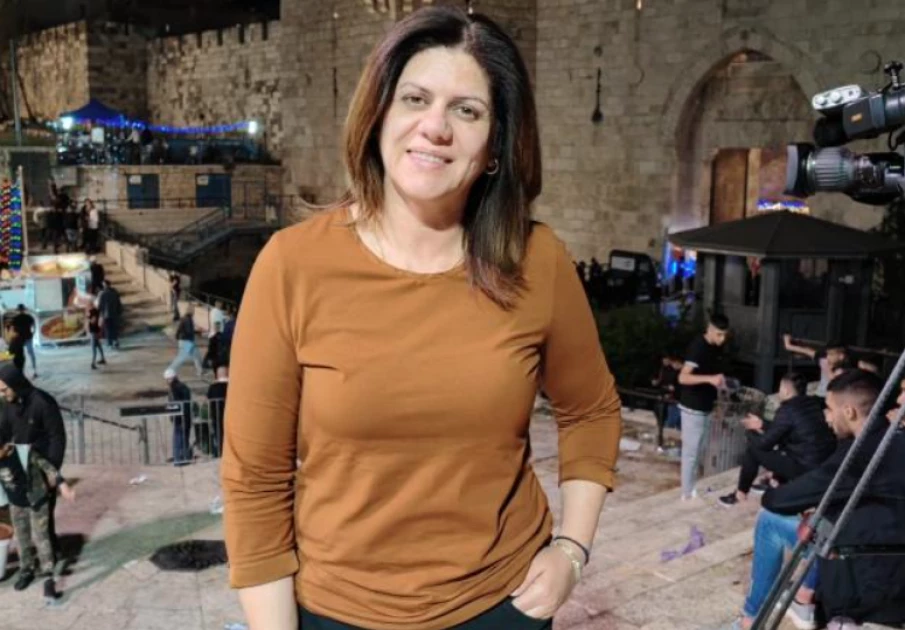Shireen Abu Akleh, journalist killed in the West Bank, was 'the voice of Palestinian suffering'

Veteran
Palestinian-American journalist Shireen Abu Akleh was a household name in the
Arab world.
For
two and a half decades, she chronicled the suffering of Palestinians under Israeli occupation for
tens of millions of Arab viewers.
Abu
Akleh, 51, was shot dead in the West Bank on Wednesday as she reported
on Israeli military raids in the city of Jenin. Her producer was also shot and
is in stable condition.
Her
employer, Al Jazeera, decried her death as "a blatant
murder" by Israeli forces. Three eyewitnesses told CNN that the
journalists were shot by Israeli troops and that there were no Palestinian
militants immediately near to the journalists. The Israeli military's Chief of
Staff Aviv Kochavi said it is "not possible" yet to determine which
direction she was shot from, promising an investigation. Earlier, Prime
Minister Naftali Bennett claimed "there is a significant possibility"
that she was shot by Palestinian crossfire.
Abu
Akleh joined Al Jazeera a year after it was established in 1997, at the age of
26. The channel became pivotal for television journalism in the Arab world for
its round-the-clock, breaking coverage of pan-Arab issues. It was controversial in the West and in the Middle East alike
for airing interviews with unsavory figures like Osama bin Laden and Arab
opposition figures.
But
Al Jazeera's biggest pull for audiences was arguably its coverage of the
Palestinian-Israeli conflict. It raised eyebrows in the Arab world by becoming
the first major pan-Arab news outlet to label Israel on a map and for giving
airtime to Israeli officials at a time when the vast majority of Arab nations
didn't recognize the Jewish state. But it also didn't shy away from covering
minute details of Palestinian suffering, often angering Israel.
Abu
Akleh became the face of that coverage at home and around the region. She
covered the Gaza wars of 2008, 2009, 2012, 2014 and 2021 as well as the 2006
war in Lebanon, according to Al Jazeera.
"I
will never forget the magnitude of destruction or the feeling that death was
sometimes close," Abu Akleh said of
her coverage of Israel's 2002 incursion into the West Bank in a video
published by Al Jazeera in October.
"We
used to sleep in hospitals or under the roofs of people we did not know, and
despite the danger, we were determined to keep reporting," she said.
Givara
Budeiri, a fellow Al Jazeera journalist who had known Abu Akleh for more than
two decades, told CNN that her friend was a very brave journalist, but she had
a crippling fear of heights.
"Shireen
never shied away from covering any event," said Budeiri. "She never
feared anything, except for standing at the top of a high building."
She
recalled that Abu Akleh would say that if she hadn't taken up journalism, her
career of choice would be to run a shelter for stray animals.
Palestinian
writer Mariam Barghouti tweeted that she recalled Abu Akleh's "voice echoing
in the house as she covered the brutality of a military invasion" when she
was a child. The Al Jazeera reporter was the only journalist to cover her own
arrest by soldiers, Barghouti wrote.
Abu
Akleh was born in Jerusalem in 1971 to Christian Palestinian parents from
Bethlehem, according to Al Jazeera. After graduating, she studied architecture
at the University of Science and Technology in Jordan, then moved to study
journalism. She obtained her bachelor's degree from Yarmouk University in
Jordan.
Before
joining Al Jazeera, she worked at Voice of Palestine Radio, Amman Satellite
Channel, the Miftah Foundation, and France's Radio Monte Carlo. She also worked
with the United Nations Relief and Works Agency for Palestine Refugees in the
Near East, according to Al Jazeera.
"Every
house ... inside Palestine or outside of Palestine, is mourning Shireen because
she is our voice to the world," said Terry Bullata, a friend and former
schoolmate of Abu Akleh. "She is the voice of our suffering under the
occupation. She is the voice of our aspiration for freedom."
Akleh
said she had chosen journalism to be "close to the people." At the
time of her death, she was learning Hebrew to understand Israeli media
narratives better, Al Jazeera said.
"In
difficult times, I overcame fear," Abu Akleh said in the October video.
"It may be difficult to change reality, but at least I managed to bring
that voice to the world."
Want to send us a story? SMS to 25170 or WhatsApp 0743570000 or Submit on Citizen Digital or email wananchi@royalmedia.co.ke
Comments
No comments yet.


Leave a Comment